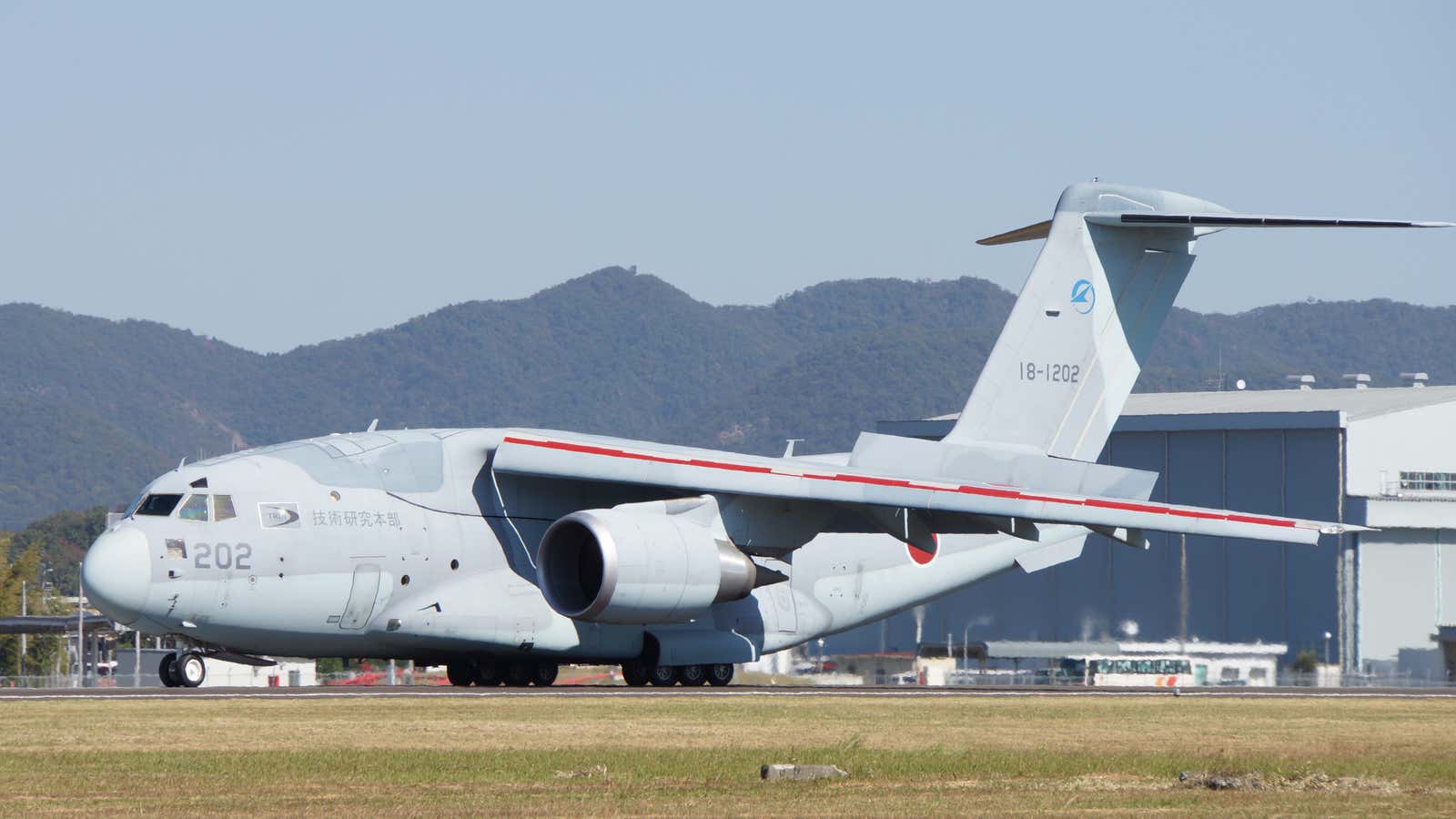It wasn’t supposed to be so hard. When Japan redrew its arms exports restrictions in early 2014, it had every reason to believe its firms would quickly succeed in selling military hardware, given their technical and manufacturing prowess. Skip ahead to today and none of them has won a major contract, despite considerable effort.
But a big win could be on the horizon. According to the Nikkei Asian Review, the United Arab Emirates (UAE) has approached Japan (paywall) to buy several C-2s, a transport aircraft made by Kawasaki Heavy Industries capable of carrying amphibious and combat vehicles to remote islands. Priced at about $170 million, the plane can carry four times more, and cruise about twice as far, as Lockheed Martin’s C-130 Hercules. The Japanese government is considering now whether to allow the deal to go through.
In April last year Japan looked well positioned to win a nearly $40 billion contract to supply Australia with new submarines, only to lose to France’s DCNS Group. In mid-2015 the UK showed an interest in Japan’s P-1 submarine-hunting aircraft, but a deal that could have been worth billions of dollars failed to materialize. In November 2016 Japan looked set to sell a dozen or so US-2 seaplanes to India, but today negotiations are still dragging on (paywall).
One problem is the Japanese government still imposes strict restrictions on arms deals, as a prominent executive in the marine division of Kawasaki Heavy Industries complained in June. ”Basically, it’s impossible for us to just go out and sell things,” Toshihide Takao told Bloomberg. “It’s a question of what the government wants to do. If the government doesn’t make a move, we can’t either.” He spoke at defense convention near Tokyo where his division was offering a small rescue submarine with no weapons.
Even the UAE deal could eventually falter. One possible snag is that Japan prohibits defense exports to nations engaged in conflict, and the UAE is part of a Saudi-led coalition intervening in Yemen. The UAE might get a pass because it isn’t the one leading the effort.
One thing is for sure: Japan’s defense exporters could use the win.
